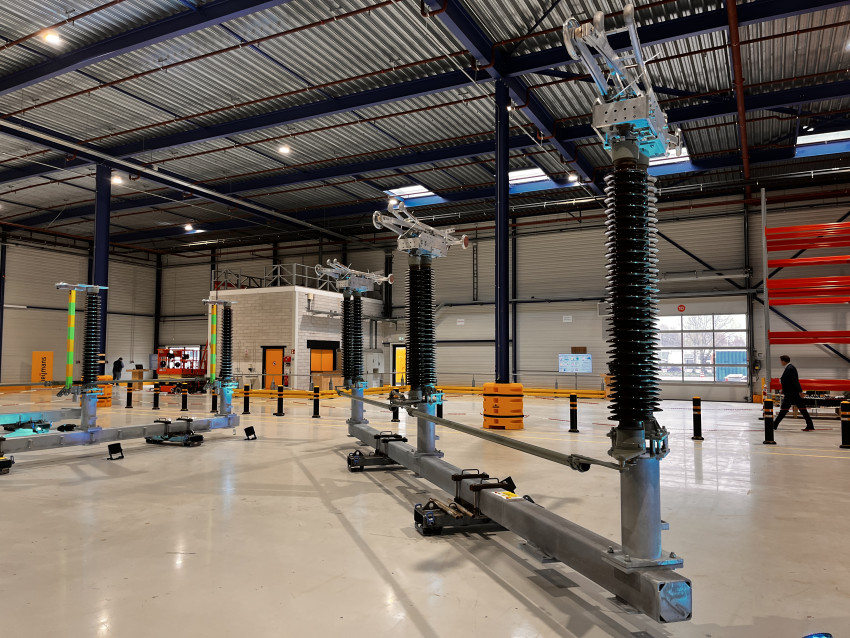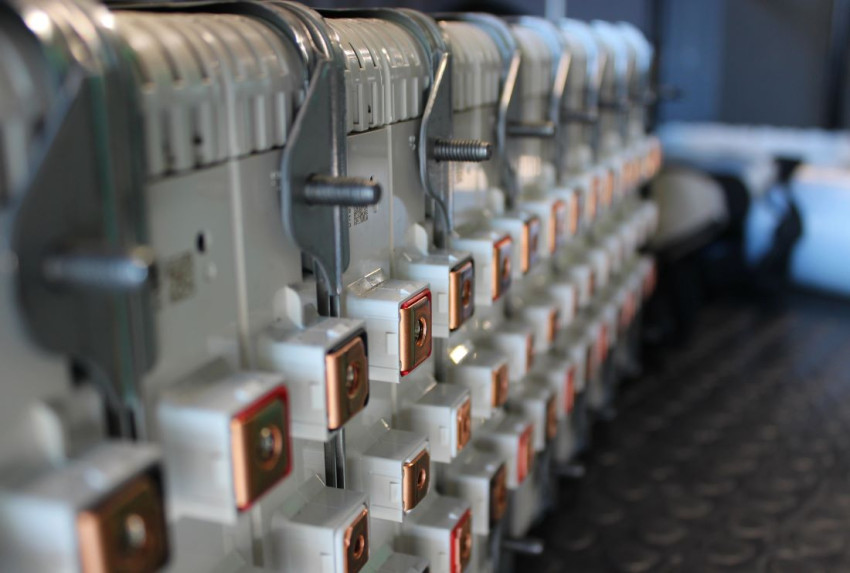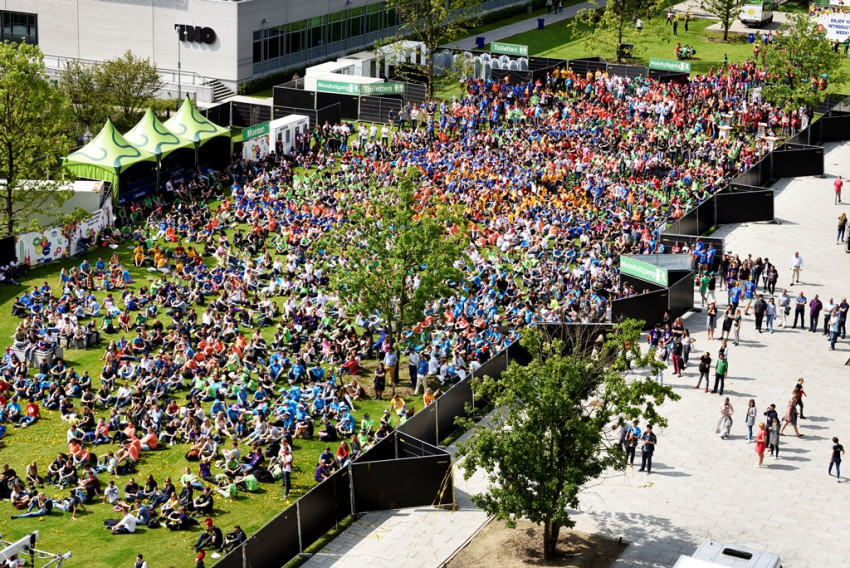
More admission limits to the most popular courses at Dutch universities of technology
The two largest universities of technology in the Netherlands have announced that they are limiting admissions to the most popular bachelor degree courses. The large influx of students combined with a lack of financing means the institutions can no longer guarantee quality.
Monday was the first day of the academic year at all Dutch universities. This is usually a time for celebration, with talks by administrators and presentations by government ministers or well-known scientists from abroad.
However, this year the tone at Eindhoven University of Technology and Delft University of Technology is much more sombre. Both institutions have applied a numerus fixus (a maximum number of admissions) for the next academic year, for yet more bachelor degree courses.
SECOND LECTURE ROOM
At Eindhoven University of Technology, the lecture rooms for some bachelor degree courses are bulging at the seams, and some students have no choice but to watch a live video stream in an adjacent room. 'That's not nice for anyone. We do put a lecturer in the second room, but students miss real interaction with the course lecturer,' says Jan Mengelers, Chair of the Executive Board of Eindhoven University of Technology. Quality suffers if a course is too full, and that is something everybody wants to avoid. 'Students are also complaining.'
For this reason, admissions to the bachelor degree courses in industrial design, biomedical engineering, industrial engineering and computer science and engineering at Eindhoven University of Technology have been limited to a maximum number of students since this year. Next year, the courses in architecture, mechanical engineering, innovation sciences and possibly applied mathematics will also be added, at the very least.
OVERCROWDING
The signals from Delft are no different. Admissions have been limited this year, due to overcrowding on a number of courses (industrial design engineering, aerospace engineering, clinical technology and nanobiology). It has also been announced that architecture will be added next year.
These courses at Delft University of Technology can no longer expand. 'We cannot cram any more students into the lecture rooms and labs,' according to Tim van der Hagen, Chair of the Executive Board at Delft University of Technology, in Dutch newspaper Het Financieele Dagblad. Lecturers are also suffering from work pressure. 'Our employees are working flat out.'
The problem is that many courses at universities of technology have attracted substantially more students in recent years, but government funding has lagged behind, putting the quality of education at stake. 'Over the past ten years, our student population has grown by 68%, while the primary cash flow has decreased by 15%,' says spokesperson Michel van Baal of Delft University of Technology.
TECHNOLOGY COURSES INCREASINGLY POPULAR
In fact, the growth in student numbers is a success story. There was a time when science and technology courses were not popular among young people in the Netherlands, but the tide has since turned, thanks to promotional activities by Platform Bètatechniek (the National Platform Science and Technology commissioned by the Dutch government, education and business sectors to ensure sufficient availability of people who have a background in science and technology), as well as campaigns such as 'Kies Exact’ (choose sciences). For many years now, the prospects for a well-paid job have also been excellent if students opt for a technology course. The economy is running at full steam, and companies such as Shell, Philips, NXP and ASML are crying out for young people with a technology degree. However, the universities of technology cannot supply enough.
The number of bachelor degree students enrolled at Delft University of Technology rose 15% in the past decade, from 10,773 in 2007 to 12,415 in 2017 (VSNU figures). In Eindhoven, numbers rose from 4,984 to 7,182 students (+44%) in the same period. There was barely any increase at the University of Twente: from 5,657 to 5,887 students (+4%), which is why only one bachelor degree course there has limited admissions: Technical Medicine.
STRUCTURAL SOLUTION NEEDED
Mengelers, from Eindhoven University of Technology, argues for a structural solution. 'The Netherlands is a knowledge-based economy, but there’s something very wrong when the demand for well-trained technicians is twice as large as the supply. It means the government has to take structural action. In the medium term, we’re asking for at least an additional €50 million a year.'
Delft University of Technology wants the government to accelerate the promises set out in the Coalition Agreement: 'review the funding system for higher education, with specific attention being paid to technology courses.' Limiting admissions to courses with a numerus fixus is not a positive course of action, and it could cause ripple effects. According to Van Baal from Delft University of Technology, 'If someone cannot enrol on an aerospace engineering degree, they’ll often register for a mechanical engineering degree instead. This doesn’t eliminate the problem, it just transfers it.
GOVERNMENT FINANCING NOT ON PAR WITH GROWTH
There are two problems with government financing of universities of technology. Firstly, the amounts are based on student numbers of two years ago, and are therefore too low. Secondly, government contributions have not been on a par with the strong increase in student numbers.
As a result, there is now 25% less budget per student compared with the year 2000, according to higher education action group WOinActie in an op-ed in Dutch newspaper NRC. The situation described by this group is quite worrying. 'The teaching workload of many lecturers has increased so much that they no longer have any time for research, which they have to do in the evenings and at weekends. Lecturers habitually work 30 to 45% overtime. Overtaxing employees therefore,’ observes WOinActie, which is echoing the universities of technology demands for more money for higher education. If nothing changes, industrial action has been announced to take place later this academic year.
If you found this article interesting, subscribe for free to our weekly newsletter!
Opening photo: Students during the induction week at Eindhoven University of Technology in August 2017. Photo: Bart van Overbeeke
Meer artikelen
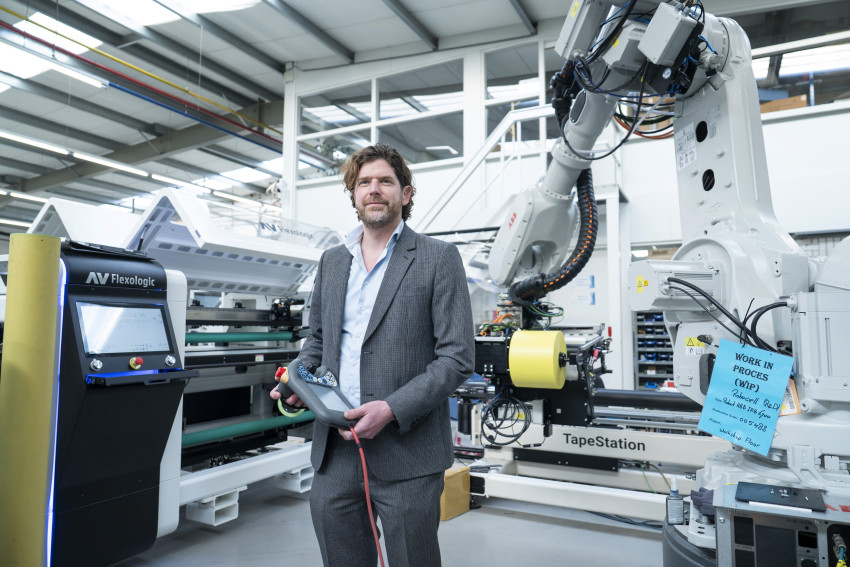
Martijn Otten: Met techniek het verschil maken
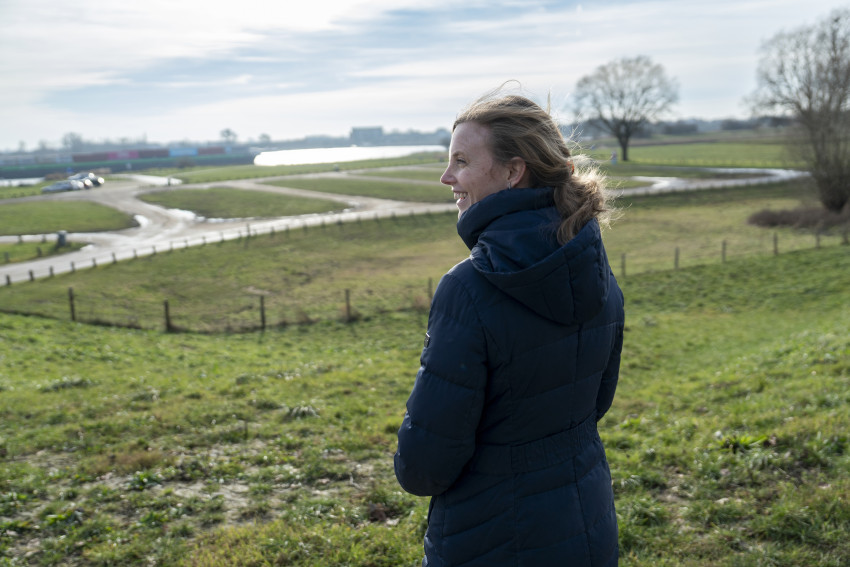
Martine Stam: Water is de rode draad in mijn leven
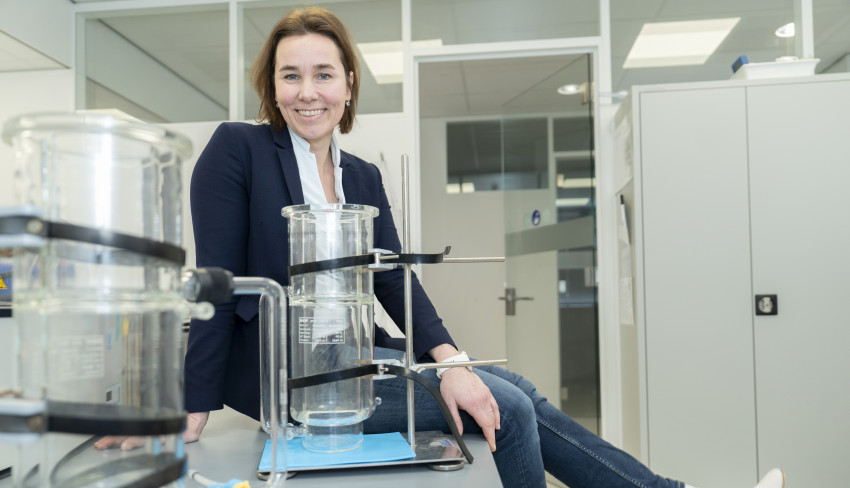
Kirsten Steinbusch: Iedereen kan iets betekenen in de transitie naar circulair
Nieuwste artikelen

Martijn Otten: Met techniek het verschil maken

Martine Stam: Water is de rode draad in mijn leven




